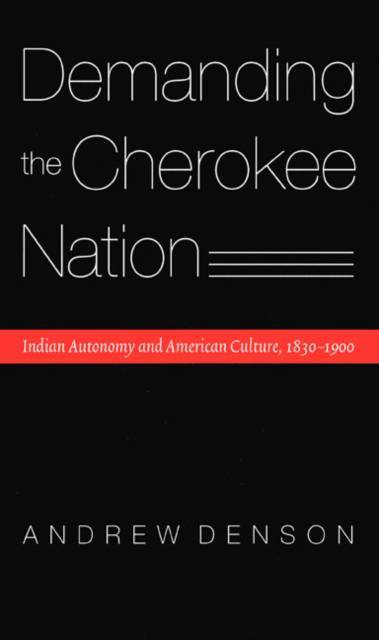
- Retrait gratuit dans votre magasin Club
- 7.000.000 titres dans notre catalogue
- Payer en toute sécurité
- Toujours un magasin près de chez vous
- Retrait gratuit dans votre magasin Club
- 7.000.0000 titres dans notre catalogue
- Payer en toute sécurité
- Toujours un magasin près de chez vous
Description
Most non-Natives in the nineteenth century assumed that American development and progress necessitated the end of tribal autonomy, that at best the Indian nation was a transitional state for Native people on the way to assimilation. As Denson shows, however, Cherokee leaders found a variety of ways in which the Indian nation, as they defined it, belonged in the modern world. Tribal leaders responded to developments in the United States and adapted their defense of Indian autonomy to the great changes transforming American life in the middle and late nineteenth century. In particular, Cherokees in several ways found new justification for Indian nationhood in American industrialization.
Spécifications
Parties prenantes
- Auteur(s) :
- Editeur:
Contenu
- Nombre de pages :
- 320
- Langue:
- Anglais
- Collection :
Caractéristiques
- EAN:
- 9780803217263
- Date de parution :
- 01-12-04
- Format:
- Livre relié
- Format numérique:
- Genaaid
- Dimensions :
- 145 mm x 223 mm
- Poids :
- 553 g

Les avis
Nous publions uniquement les avis qui respectent les conditions requises. Consultez nos conditions pour les avis.






